Vyacheslav Zubarev: ‘Even if we flood the market with new cars, we would not reach the previous sales level’
The head of TTS — about the fall of the market, the withdrawal of brands, and new growth drivers for Russian car dealers
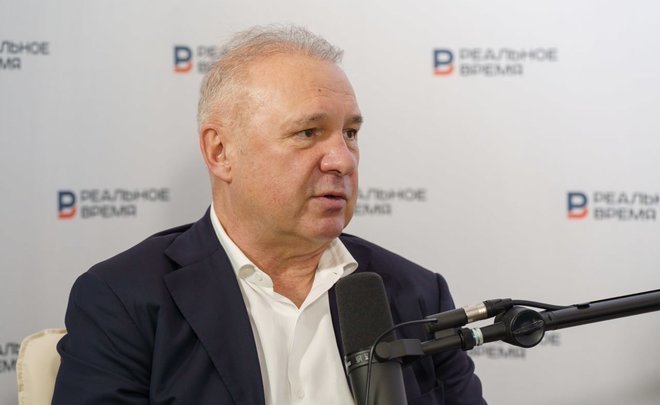
The Russian economy has been subjected to unprecedented sanctions pressure from the West, and one of the most affected industries is the Russian car market. Many foreign companies left the country, the volume of supplies fell several times. Today, the auto retail is in the process of reformatting — Chinese brands have occupied the vacant niche, large dealers are switching to parallel imports and the sales of used cars. Vyacheslav Zubarev, the chairman of the board of directors of TransTechService Group, told more about these and other market trends at an online conference of Realnoe Vremya.
Сar market sank by 60% in 2022
The deliveries of foreign-made cars to the Russian market were abruptly interrupted last spring. During the same year, the market for new cars in the country sank by 60%. According to the head of the TTS, Vyacheslav Zubarev, previously the dealer network in the country was designed to sell almost 3 million units of cars a year — as a result, only 650 thousand cars were sold throughout the country. This branch of the economy has not experienced such a colossal decline since the beginning of the 2000s, he stressed:
“Not a single company, with the exception of Chinese, has been supplying anything from the factory to Russia since March. The catastrophic decline was almost three or four times — this is an unprecedented drop — I don't remember such a thing in the new history of Russia!”
According to him, it is quite difficult to predict what the results of the current year will be, since many “unknowns” influence the state of affairs and future prospects. Nevertheless, Vyacheslav Zubarev is inclined to believe that this year, in terms of sales, will not be inferior to the indicators of 2022 and even slightly surpass them:
“The catastrophe already happened last year, when supplies from our partners were abruptly stopped — these are European companies, Japanese, Korean, American. Now there is a process of substitution. Cars are being delivered through traditional dealer channels, but only from China, and Chinese manufacturers are actively increasing their share of presence in Russia. As we can see, Chinese brands are increasingly found on our roads today. Deliveries of traditional brands of cars that used to be in car dealerships in Russia are carried out on parallel imports and in a rather insignificant amount compared to previous years.”
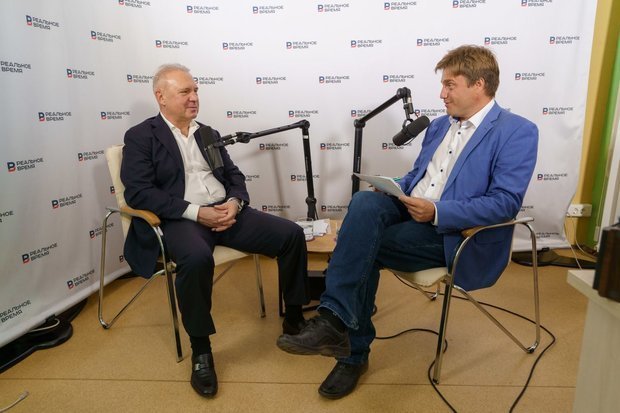
Today, Russian retailers do not receive proposals that would compensate for the loss of official deliveries of luxury cars, which include Rolls-Royce and others. It is unlikely that they will be parallelly imported, Zubarev believes: “Given that Western sanctions separately emphasise the impossibility of the supply of luxury cars, I think there will be a lot of obstacles.”
Currently, expensive Chinese brands such as Exeed, Tank and others are beginning to replace premium segment cars. But there is no need to talk about a full-fledged replacement of such withdrawn brands as Lexus, Audi or Porche, the speaker noted.
In his opinion, at the end of this year, the auto retail market expects a small plus, although the final result will depend on many factors:
“Where to fall further? Now some stabilisation will come, as it seems to me, and we will continue to work at the expense of Chinese and new domestic brands, such as Moskvich. Avtotor is starting to produce, it is possible that some other assembly plants will be launched. AvtoVAZ announced that it will assemble new models at the former Nissan plant. Probably, we will move to the plus, after all.”
Russians have become less likely to buy new cars
In the meantime, the automotive business in the country is only setting up a new mechanism of work and, of course, it has difficulties: AvtoVAZ is faced with the problem of supplying components and spare parts, which immediately affected the dynamics of market sales of cars from this manufacturer. Logistics companies dealing with deliveries have to solve a lot of issues and problems — they do not have large intermediate warehouses, sales are more often “off the wheels”, which also affects the dynamics of sales.
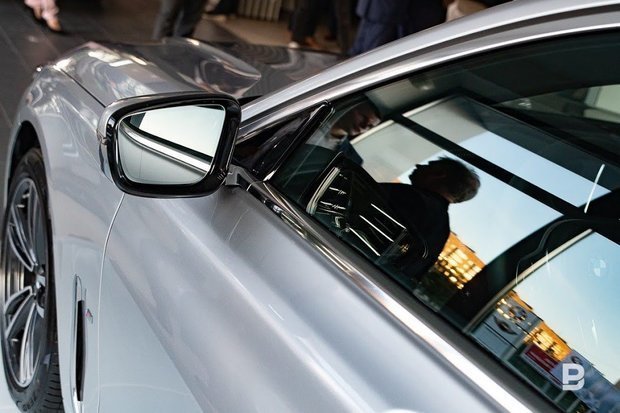
Another problem is connected with the supply of cars from China — new transport routes are needed. The railway has a limited capacity, border crossings for car carriers are overloaded, and queues reach 30 days or more. Factories in China are quite capable of producing much more cars for Russian consumers, but it is not yet easy to bring them to the country in the required volumes.
The overall results of the work of Russian auto retailers, of course, were also affected by the decline in the purchasing power of the country's population. Russians have become less likely to buy new cars, and those who already had a car of a withdrawn brand prefer to extend the life of their “iron horses” rather than buy another car. “Today it has become a widespread trend," Zubarev notes.
He believes that the main factors of sales growth will be the availability of cars in the showroom, the growth of purchasing power, and the participation of the state in these issues:
“Even if we flood the Russian car market with new cars today, we would not have reached the sales level of 2019-2021, because the purchasing power has decreased. But still, today's market is more determined by the supply of cars — they still remain in short supply. It is difficult for me to say how much this difference is between the existing market and what it would be in the absence of this deficit.”
The speaker believes that state support — programmes for young families, subsidising loans, discounts for a certain category of citizens — fuels consumer demand. These and other measures also have an impact on sales volumes.
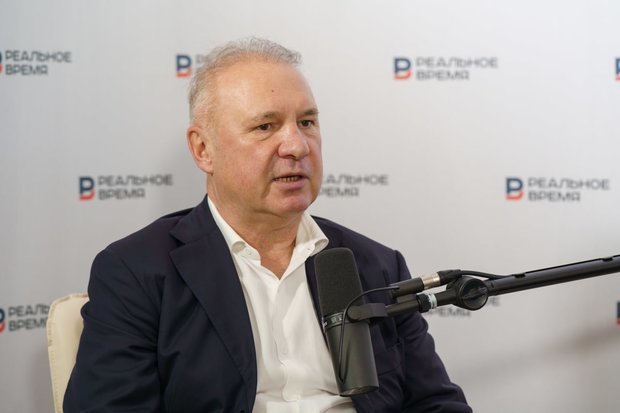
The sale of used cars for car dealers is going to become a new growth driver
Reformatting of the Russian car market after last year's withdrawal of leading foreign brands is still at the initial stage. Each company operating in the domestic market, including TTS, had to determine its further path — choosing between a survival strategy and a development strategy. The vast majority chose the first option to maintain their place in the market, the backbone of the staff, not to spiral into a fall and collapse:
“We have been trying to assess this new situation for a long time, there was a certain period of confusion, it was necessary to understand how to work further. Who would have thought a year and a half or two years ago that our 80 car dealerships would be without car supplies at the same time? As a result, we determined our further development strategy — the bet was placed on business cars with mileage. We don't want to just resell — we provide a service: we prepare cars, filter them, check the authenticity and purity of the transaction, thereby providing guarantees for our client.”
If a couple of years ago only 15-18% of cars were sold in the used car market through the official dealer network, now this area is going to become a new growth driver for many dealer groups. What is interesting about this segment? According to Zubarev, there is minimal dependence on partners, and it is more stable in the current situation. Besides, new partners were found in Chinese companies.
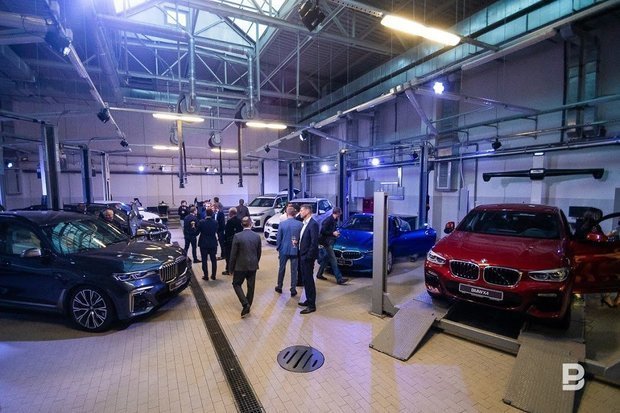
The more representative offices of new companies, the better for consumers
As the speaker notes, today the domestic car market is quite actively “captured” by Chinese cars. In recent years, auto retail in China has been developing by leaps and bounds — there are about 50 car brands here. Chinese companies are incredibly lucky — a large market has opened up in front of them in Russia. But there are also many questions: how will the new players who come from China divide the Russian market, what is their strategy and view on it:
“They churn out new brands very quickly, and their behaviour is very different from, so to speak, 'old' European companies. It is still unclear what our market will look like, but I am not sure about the imminent return of the brands familiar to us. If we talk about Chinese brands, who will be, in what quantity — it is also difficult to say. The greatest activity is seen in Chery, Omoda, Exeed, Geely, Changan, and others. There are those who are already actively working and selling, there are those who are just coming to us. In any case, the more representative offices there are, the better for consumers.”
The direction of servicing imported cars, providing parts and spare parts was also hit by anti-Russian sanctions, but it was not as critically felt as the supply chain. Companies working in these areas have quickly adapted to the new conditions.
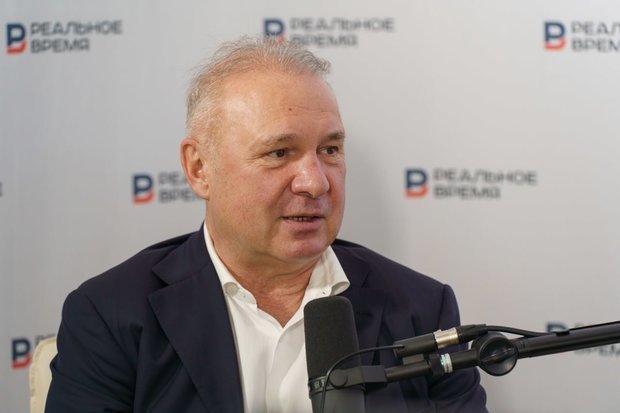
“Manufacturers continue to provide us with spare parts, although in a smaller range and quantity. But they gave us more freedom — previously they forbade us to buy spare parts somewhere else. Now it has become possible. We understand that people will save in the future, so today we are developing the provision of more budget services. We offer three options: branded spare parts obtained through official channels, the second is cheaper, but similar in quality, but not passed the incoming control of the manufacturer, but in fact, manufactured at the same factory, the third option is even more budget-friendly, but also of good quality. Moreover, we buy only from reliable manufacturers, we conduct very strict control and do not take counterfeit goods, we immediately refuse products of questionable quality," the speaker assured.
Another consequence of the sanctions impact is the lack of a guarantee for cars from the manufacturer imported by parallel import, or for used cars. However, the buyers of such cars are given their guarantee in the TTS — it applies to certain parts of the car and for a certain time. This is a new programme that was launched about a month ago.
“The car bought from us will be guaranteed to be legally clean, and if suddenly, no, then it will be our losses, not the customer's. The same goes for maintenance. This market has always been a bit “wild”, where deception is present quite often. For example, to cheat with the speedometer or conceal some defects. What is it? It's deception. But we have much more opportunities to identify shortcomings than others: we have our own large database on car maintenance, communication with the Russian database. And we can be deceived in some cases, and our employees can miss, but the probability that we will identify the shortcomings of the car is much greater than that of some pseudo specialists.
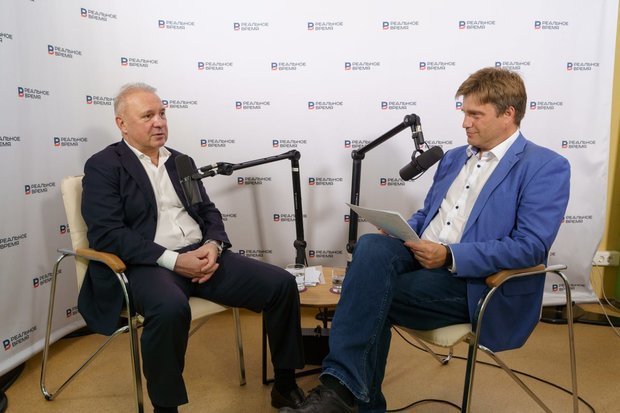
This March, at the Regional ROAD Council, market participants discussed the consolidation of the auto retail market. Commenting on this unification process, Vyacheslav Zubarev, who recently resigned as president of the organisation, noted that consolidation is, in fact, the consolidation of the market and the reduction of the number of its players. “This is most likely a requirement of today's market. Dealer network in Russia — 3 million cars, well, 750 thousand will be sold according to optimistic forecasts. The difference is four times. How to meet everyone? There is, of course, a reduction in the number of employees in the industry, and someone will be able to survive in the new conditions, and someone will not. Therefore, someone will leave the market, or there will be a takeover, or a reprofiling of the business. In an unstable market, when it is necessary to make operational decisions, this association with a blurred decision-making center — I think this is a very unfortunate design," concluded the interlocutor of the publication.